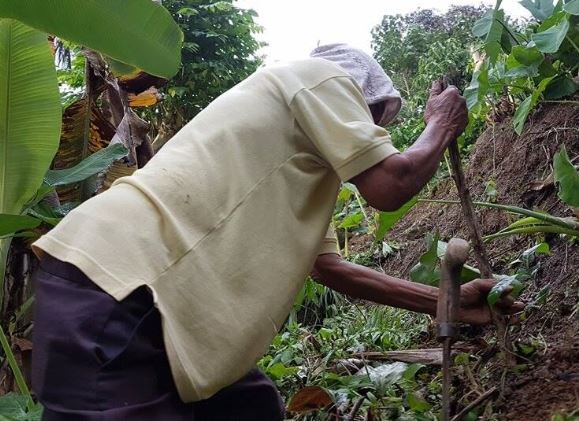
The Mandaya tribe in Barangay Calapagan, Lupon, Davao Oriental in Southern Philippines noted that some of their indigenous ways and practices that are beneficial to their community have been lost with time, such as the ligad and pasoot, which ensure food security. Ligad means “on the side” where the farmer plants root crops or vegetables on the side of his rice or corn field which will augment food supply while waiting for harvest. Pasoot means undercropping, where the farmer plants wakag or ube (yam) underneath the corn. This was a realization while the project was ogoing.
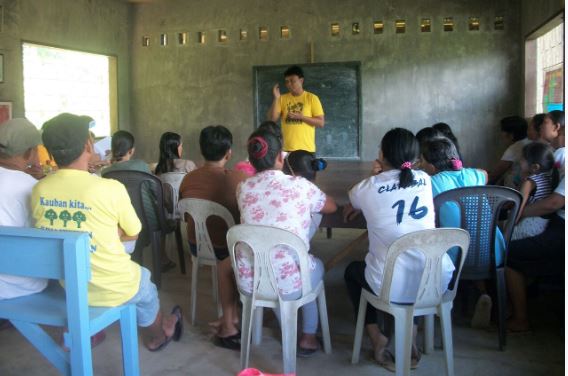
Consultations are a requisite in identifying a community’s problems and needs to serve as basis for a project implementation. Members of the Mandaya Tribe, specifically the Limpong na Tutong Mandaya na Kabubayan sang Calapagan na Asosasyon (LTMKCA) and key tribal leaders and local government officials were consulted thoroughly to ensure their consent, participation and support to the project that aimed to help protect their sacred forests, strengthen traditional knowledge and enhance climate resilience. The community’s approval and understanding of the project was a paramount concern. Various trainings were conducted among the Mandaya women and men for their capacity and awareness building where they too, shared the value of their traditional knowledge and practices.
The Project Management training enhanced their skills and existing knowledge in handling programs of their communities. The training on Leadership, while improving their leadership skills, also enabled the participants to identify leadership attributes of indigenous peoples which are relevant and should be retained, and the unfavourable ones that need to be changed. The training on Basic Research equipped the participants with understanding of research work and developed their skills in documenting indigenous knowledge, ways and practices of the Mandaya people, and reporting incidents in their communities.
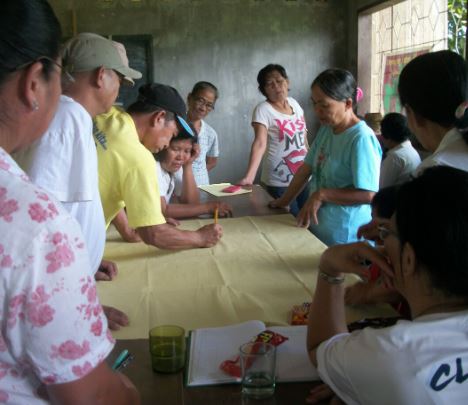
The community women’s knowledge and skills levelled up upon realizing their rights in decision making and lobbying which in their culture are still dominantly male-centered. Their awareness of the United Nations Declaration of the Rights of Indigenous Peoples (UNDRIP), Indigenous Peoples Rights Act (IPRA), Women’s Rights, Environmental Laws and Climate Change boosted their awareness and built their confidence.
Series of workshops and Focus Group Discussions was facilitated to document Mandaya indigenous ways, knowledge and practices on climate change adaptation and forest resource management in Calapagan. Community teams were created to complete the data necessary for the research and documentation. Assessment and evaluation were held before and after community activities, then planning for the completion of the documentation of practices which was deemed important and needing constant updating. This was to be used by the young generation of the tribe for them to protect their forest and territories. They also identified the youth’s vulnerability to the challenges that their environment faced due to modern day technology. Traditional practices to mitigate climate change that were already being done by the tribe were documented.
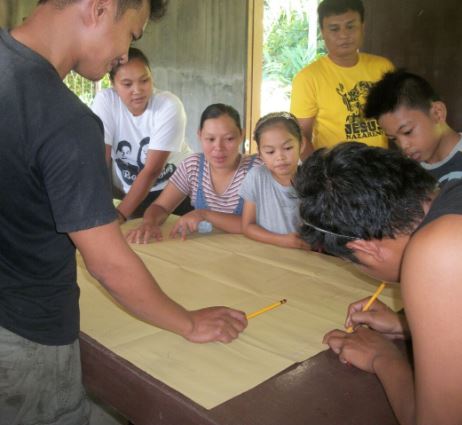
Territorial mapping done alongside the research enabled participants to identify boundaries, local resources and practices of local farmers to protect their forest and other sources of livelihood. The information gathered was to be used by the Mandaya tribe’s claim to their ancestral domain and protection of their territories.
Going into actual production, the community utilized a total of 43 hectares of individual farms and planted these with abaca and coffee sourced out from the members of LTMKCA. This introduction of non- timber products to their territories was a diversification to create community enterprise in the near future, and support their survival with minimal impact on the environment.
The training on Policy System and Procedure strengthened the women’s organization and improved their capacity to run their organization in accordance with their customs and beliefs while ensuring active participation of the members. This was complemented by the Indigenous People’s Orientation in Budgeting Process attended by women leaders which enhanced their knowledge of the government and other line agencies’ formulation of their budget. This will guide them in lobbying the government for any services that the community needs.
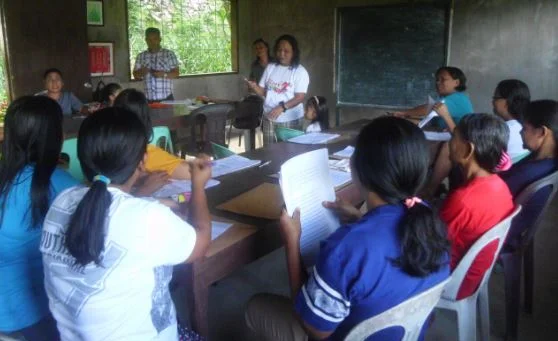
The participants realized their leaders’ attributes that are relevant to their organization and communities’ needs and they developed facilitating and leadership skills for their community’s activities. The para-legal training showed them the core value of applying for the Certificate of Ancestral Domain Title (CADT) and FPIC processes, and they committed to protect their rights in resource management against those extractive companies that threatened their territories. They initiated a dialogue with the NCIP provincial office for the CADT process of the Mandaya Tribe in which their application was pending due to unavailability of persons from the agency. They had held previous dialogues with line agencies to lobby and access possible livelihood project for the indigenous women’s organization.
The celebration of Indigenous People’s day was an occasion for IKSP holders to transfer indigenous knowledge, skills, and practices to the young generation through a festival and community celebration. Also a day of thanksgiving for the abundant harvest, the Mandaya expressed their connectedness to their environment and how their practice of traditional knowledge protects their forest. They also know that they have to protect themselves from harassments and their human rights respected, being in the midst of man-made and natural disasters.
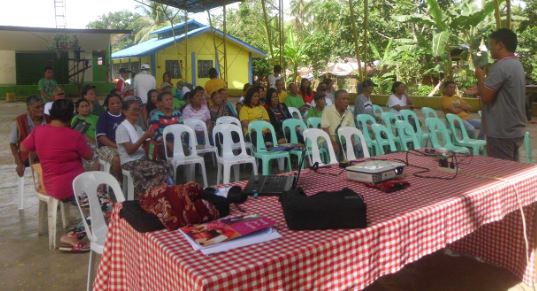
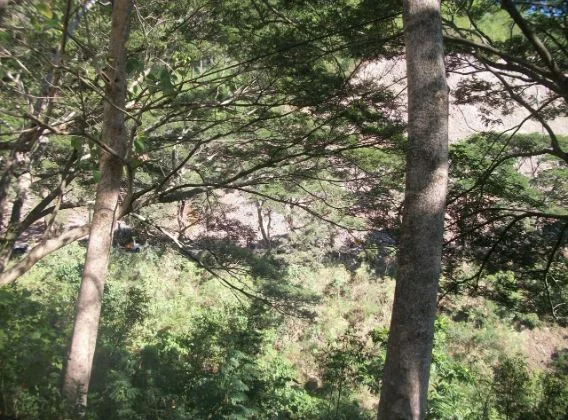
SILDAP -Southeastern Mindanao, Inc. implemented the project Protecting the Sacredness and Richness of the Forest of the Mandaya to Strengthen Traditional knowledge and Enhance Climate Resilience in February 2018 with support from PAWANKA Fund.
